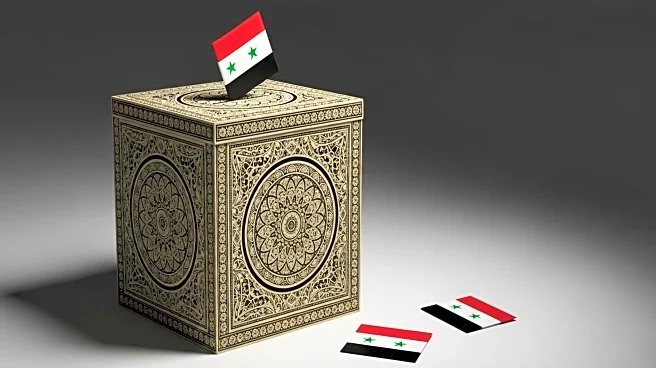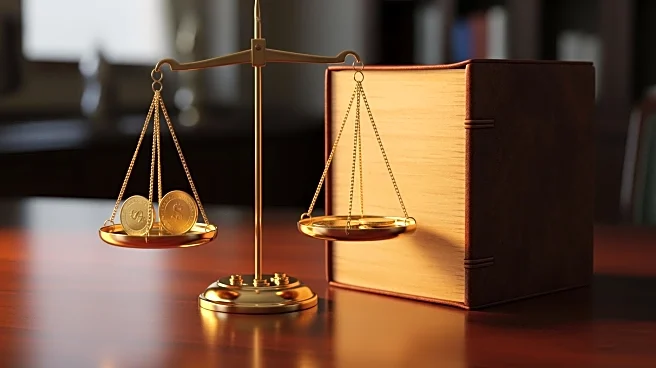What's Happening?
Damascus is set to hold its first parliamentary elections since the fall of former President Bashar Assad, yet many residents remain unaware of the event. The election process involves electoral colleges voting for two-thirds of the People's Assembly seats, while the remaining seats are appointed by interim President Ahmad al-Sharaa. The lack of public engagement and awareness is attributed to the absence of traditional campaigning and the challenges posed by the civil war, including displacement and loss of documentation. The interim government aims to fill the legislative vacuum left by Assad's regime.
Why It's Important?
The parliamentary elections represent a critical step in Syria's political transition following Assad's ousting. The process is intended to establish a new legislative framework and promote stability in a country ravaged by civil war. However, the lack of public participation and transparency raises concerns about the credibility and inclusiveness of the transition. The outcome of the elections could influence Syria's future governance and its relations with international stakeholders. The situation underscores the challenges of rebuilding political institutions in post-conflict settings.
What's Next?
The election results will be closely monitored to assess their impact on Syria's political landscape. The interim government faces the task of addressing criticisms regarding the election process and ensuring that the new parliament effectively represents the diverse interests of the Syrian population. Efforts to engage displaced citizens and integrate minority groups into the political framework are expected to continue. The international community may play a role in supporting Syria's transition and advocating for democratic reforms.
Beyond the Headlines
The elections highlight broader issues of governance and representation in post-conflict Syria. The ethical implications of conducting elections without widespread public awareness or participation are significant. The process reflects the ongoing struggle to balance stability with democratic principles in a nation recovering from authoritarian rule. The role of external actors in shaping Syria's political future remains a point of contention, with implications for regional dynamics and international diplomacy.









